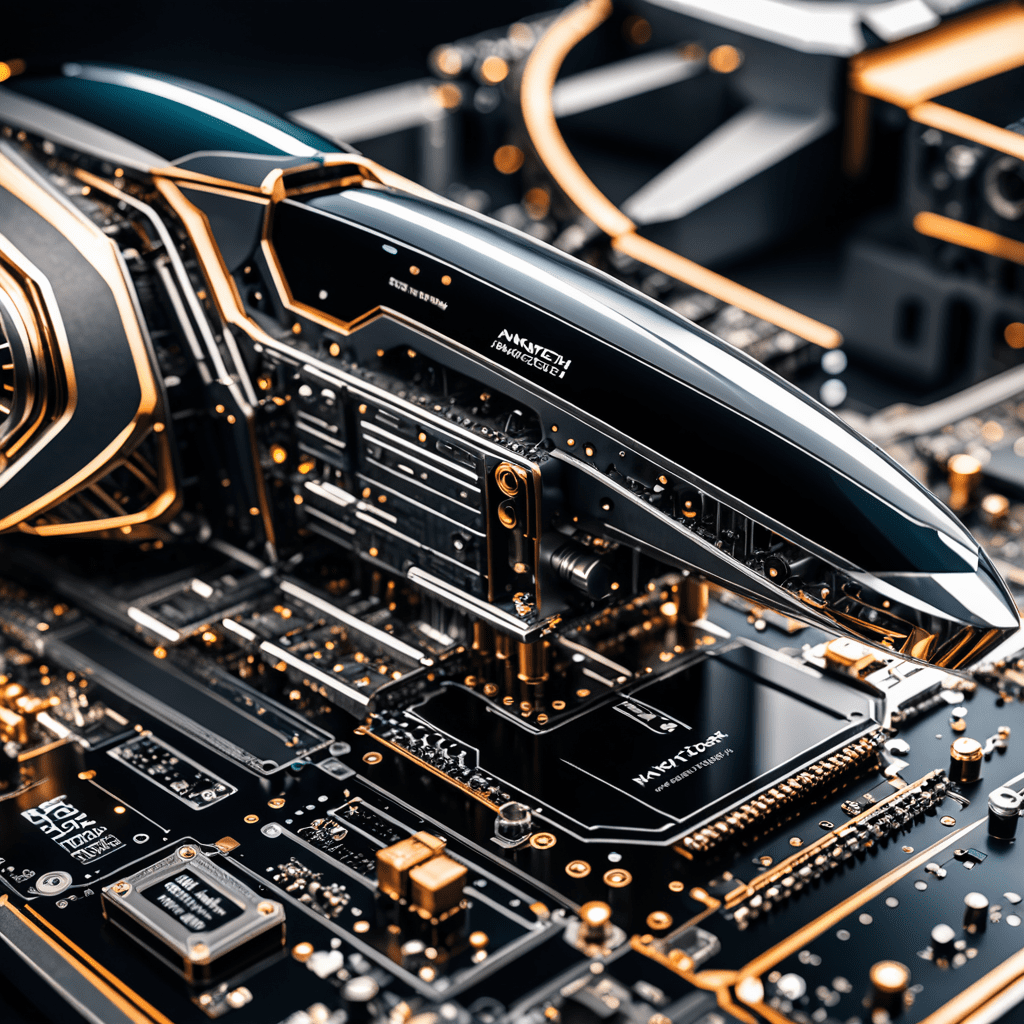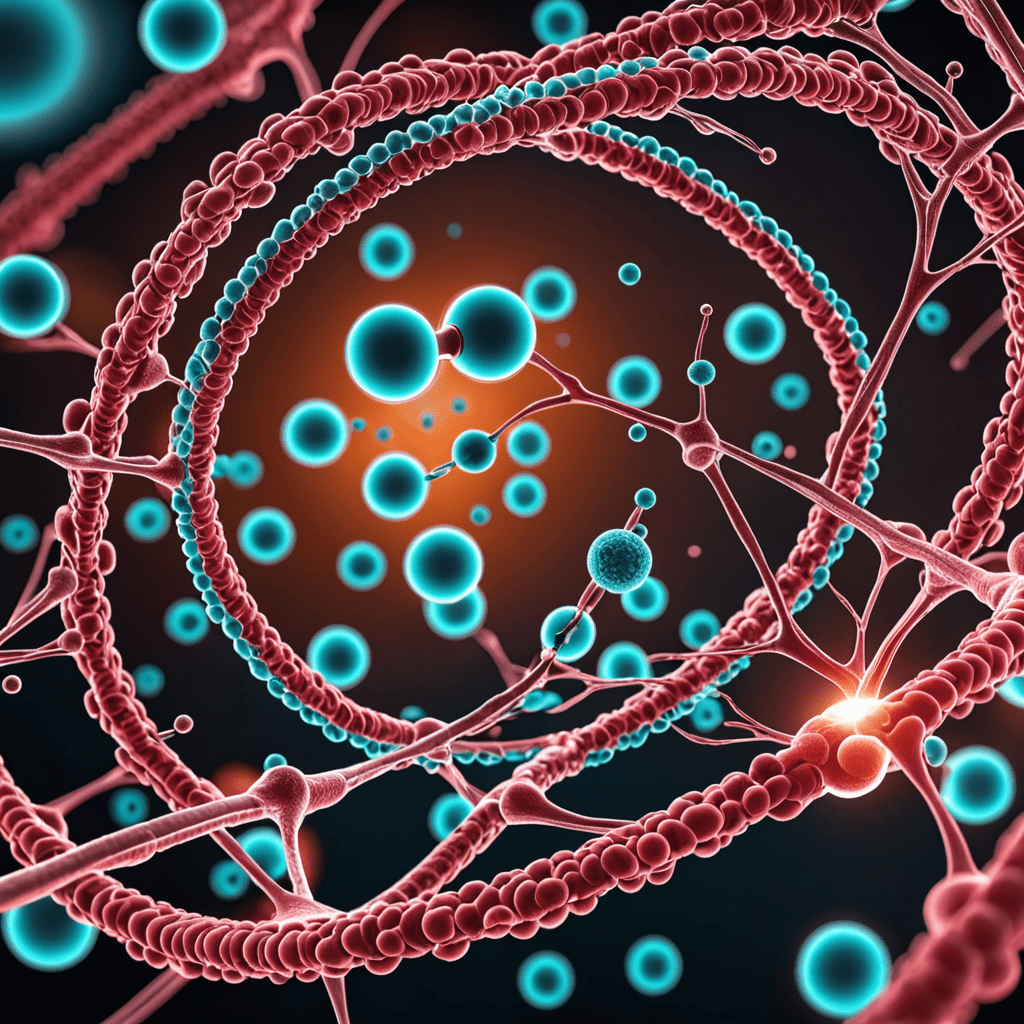
Nanotechnology in Neuroengineering: Enhancing Brain Interfaces
The Intersection of Nanotechnology and Neuroengineering
Nanotechnology has made significant advancements in the field of neuroengineering, revolutionizing the way we interact with the brain. By leveraging the unique properties of nanoparticles, scientists are enhancing brain interfaces to improve communication and understanding of the brain’s complexities.
Understanding Brain Interfaces
Brain interfaces are technologies that connect the brain to external devices, allowing for bidirectional communication. These interfaces play a crucial role in neuroscience, neurology, and neuroengineering by enabling researchers to study brain function and develop innovative therapeutic solutions for neurological disorders.
The Role of Nanotechnology in Enhancing Brain Interfaces
Nanotechnology offers precise control at the nanoscale, allowing for the manipulation of materials to create advanced brain interfaces. Nanoparticles can be engineered to improve electrode conductivity, enhance biocompatibility, and enable targeted drug delivery to specific regions of the brain.
Applications of Nanotechnology in Neuroengineering
In neuroengineering, nanotechnology is utilized in various applications such as neural prosthetics, brain-machine interfaces, and neural tissue engineering. These technologies hold the potential to restore lost neurological function, monitor brain activity, and even enhance cognitive abilities.
Challenges and Opportunities in Nanotechnology for Brain Interfaces
While nanotechnology offers promising solutions for enhancing brain interfaces, challenges such as biocompatibility, long-term stability, and scalability need to be addressed. Collaborations between nanotechnologists, neuroscientists, and biomedical engineers are essential to overcoming these hurdles and unlocking the full potential of nanotechnology in neuroengineering.
The Future of Brain-Computer Interfaces with Nanotechnology
Nanotechnology continues to push the boundaries of what is possible in neuroengineering, paving the way for the development of more advanced brain-computer interfaces. As researchers delve deeper into the realm of nanotechnology, we can expect to see groundbreaking discoveries that will transform the field of neuroscience and revolutionize healthcare.
Conclusion
In conclusion, the integration of nanotechnology in neuroengineering is opening new frontiers in our understanding of the brain and its interactions with technology. By enhancing brain interfaces through nanotechnology, we are moving closer to achieving seamless communication between the brain and external devices, ultimately improving the quality of life for individuals with neurological conditions.
FAQ: Nanotechnology in Neuroengineering: Enhancing Brain Interfaces
What is nanotechnology in neuroengineering?
Nanotechnology in neuroengineering involves the application of nanoscale materials and devices to enhance brain interfaces. These tiny structures can interact with neurons at a cellular level, enabling precise control and communication within the brain.
How does nanotechnology enhance brain interfaces?
Nanotechnology improves brain interfaces by providing a platform for more efficient communication between external devices and the brain. Nanoscale materials can enhance signal transmission, mapping neural activity, and even stimulate neurons for therapeutic purposes.
What are the benefits of using nanotechnology in neuroengineering?
Using nanotechnology in neuroengineering offers significant benefits such as increased precision in treating neurological disorders, improved brain-computer interfaces for communication and control, and the potential for developing advanced prosthetics that can seamlessly integrate with the nervous system.
Are there any ethical concerns related to nanotechnology in neuroengineering?
While nanotechnology in neuroengineering holds promise for enhancing brain interfaces, it also raises ethical concerns. These include issues related to privacy, consent, potential misuse of technology for cognitive enhancement, and ensuring the safety and long-term effects of nanomaterials on the brain.


